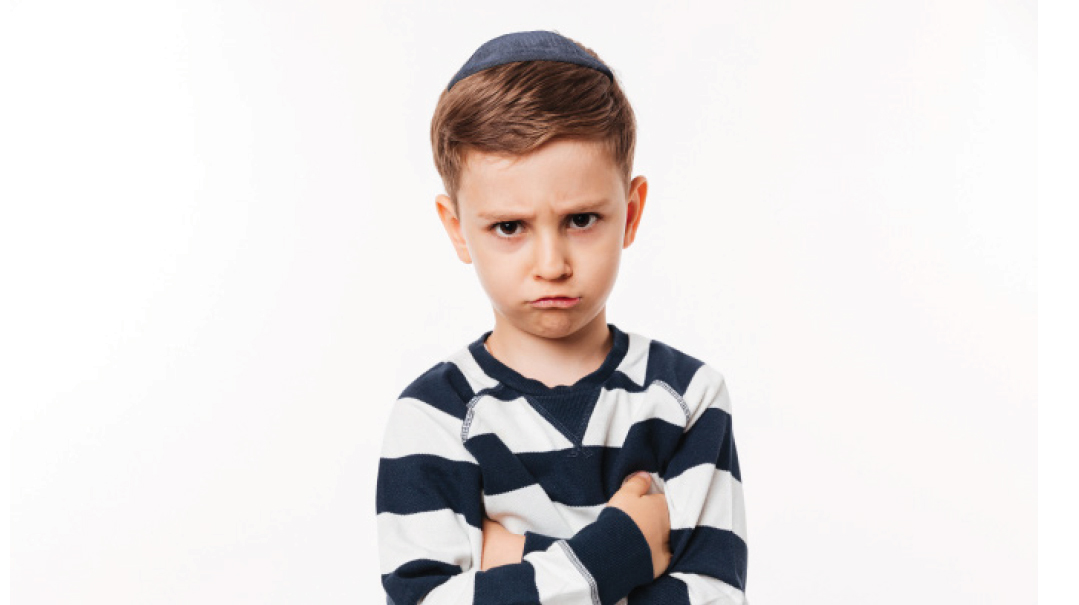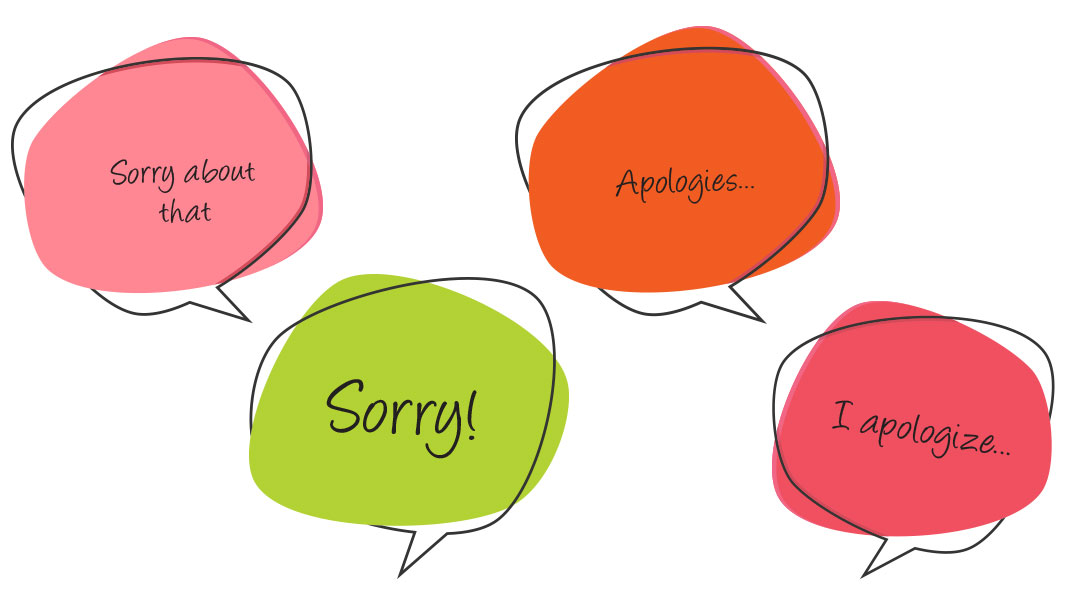Tuning into My Own Voice

Two women take on reverse dares

If you’ve ever read a Dare and wondered, “What’s the big deal? I do that every day!” then you’re not alone. What one woman does without a second thought may be daunting to her friend, while her sister laughs at both those challenges — but quails from another.
To explore this dynamic, Family First spoke to two women whose hurdles are diametrically opposed. Perhaps you will see yourself in one, perhaps in the other, or perhaps in both on alternate Tuesdays. No matter whose mindset you identify with, looking over the shoulders of two courageous women as they stretch themselves will provide you with insight into the choices you face every day.
Introducing…
Bracha:
With seven kids ranging from infant to older teen, you’d think I’d already know what I’m doing when it comes to parenting, but no, I’m floundering like everyone else.
I did once take one of the popular, mainstream parenting courses, and was a pretty faithful student. While I can’t say I always applied the methods, I mastered the basic concepts, and more or less followed the teacher’s approach, with mixed results.
More generally, I’ve always been a large consumer of parenting articles and classes. But sometimes, I wonder if everything I read is paralyzing and leads me to mistrust my own judgment. So much of the advice is conflicting; how do I know which is right? Why should I stuff myself and my kids into another person’s box?
Esti:
I’m actually not a big advice-seeker, because honestly, I’m good at this parenting thing. From my marrieds down to my pre-teens, I’ve got a great relationship with all my kids, they’re successful, well-liked, emotionally healthy ⸺ I could basically give a parenting course, if I can say that without seeming boastful.
The Challenge
Bracha:
I want to tune into my own voice for a change. For the next two weeks, when I’m faced with a parenting dilemma, I want to block out all the static and just wing it. To you, that may not sound like such a challenge, but for me it is. I want to find out ⸺ am I capable of listening to my own truth? How will things work out if I do?
Esti:
My challenge presents in the form of my adorable and unpredictable 11-year-old. While I raise him the same way I raised my other kids, I’m at a total loss when it comes to his wild outbursts, which are straining the whole family. His OT strongly recommends a particular parenting class, which he thinks will reinforce the floor-time work we do in therapy.
Me? I’m doing so well, I’m a great parent! It’s Shuey who has challenges. I’m good.
Then I research the recommended parenting teacher and freak out. Her oldest is eight, and I’m a mother-in-law, for crying out loud! I should go sit next to all these 20-somethings and learn to talk to my kids?!
How It Went Down
Bracha:
Overall, I’m pleasantly surprised to realize there aren’t as many moments as I expect in which I need to resist the voices in my head telling me what I ought to be doing. A few days go by before I remember that I’m doing this. Maybe I’m parenting less self-consciously than I thought.
The first time I consciously override Expert Wisdom relates to an issue I frequently debate with my husband. A more old-school disciplinarian, he’s always scandalized when my teen girls lounge on the couch while I’m sweeping, or if they leave the table without clearing up. I, on the other hand, usually take the contemporary approach that we can’t overburden our children, it’s not their responsibility to clean simply because we have a large family, kids need to be kids, blah, blah, blah.
This Shabbos, though, when we start with our usual lines about the kids helping, I stop and view it through the lens of this challenge. What do I really believe, and what are the lines I’ve swallowed from the Experts?
It turns out, I think my husband is right on this one. Once I clear my mind of all the advice columns I’ve read, I conclude that I really do believe in responsibility. I’ll never be as strict about it as he will, but I don’t agree with the current trend of expecting so little of kids.
Just a couple of days later, I lock horns with a child who likes me to prepare his clothes for him each evening before bed. I don’t have time that night to gather his clean clothes from the laundry room, and things get tense. After eventually manhandling a grumpy seven-year-old into bed, I rehash the events. Maybe I shouldn’t have been so firm? Maybe this is the way he needs me to show love? He won’t need me to lay out his clothes when he’s in mesivta, right?
It’s my husband, again, who gives me the perspective check: “You sound like a parenting class,” he tells me. “You don’t need to be so lomdish; just do what works for you!” He’s right, of course. I’m ascribing major significance to every interaction, and we’ll all be okay if I just go with what works in the moment.
My biggest win is when one of my kids screams “I hate you!” at his sister. I know that the current trend is to acknowledge and validate big feelings, but I come down hard, because some things are just not okay in my home; empathy’s got to have limits. I know demonizing feelings is “wrong.” But it feels totally right to me.
Esti:
I swallow my embarrassment and remind myself how much I love this precious, impossible kid. I trust the therapist, and he thinks this can help. So though my friends are skeptical ⸺ this isn’t really done in my generation. I sit myself down with the cute young things, literally the bubby in the room. What I hear blows my mind; it’s a whole different approach to relationships.
Even after the first class, I have to force myself to go back ⸺ they’re all so young, and I don’t need help! ⸺ but after that, I’m hooked. I learn that even though I thought I was doing great, I was just coasting; my bigger kids have missed out on so many opportunities I could have utilized, and that is very painful, but eye-opening.
I learn that although my son may qualify for a diagnosis, I can look past that. I learn that he’s so much more than a label, and that I need to strip away my ego to parent him effectively. I learn how to understand and consider his thoughts and feelings, and not to simply lay down authoritarian commands.
I work hard to implement the methods, though it’s more about a paradigm shift than specific techniques. One night during a particularly challenging power struggle, I take a deep breath and focus on empathizing, but apparently I wasn’t applying the principles so well. Shuey snorts: “Now you’re gonna do that thing where you repeat what I say again and again?”
This time I burst out laughing, but in general, I learn to see him as a little human, a full-fledged, albeit smaller person.
When our family undergoes a major transition, Shuey flies into a rage. “I don’t agree to this,” he shouts. “No one asked me!” Instead of shutting him down and calling him out for his chutzpah, I apply my newfound skills to validate his emotions, and distract him when necessary. I leave the discipline for a quieter moment when he can really hear me.
I’m calmer because I have an arsenal of tools that I can use. Taking this course brings my family serenity at a time that could potentially be chaos.
Looking Back
Bracha:
Despite my years of conscientious rule-following, it turns out I don’t agree with a lot of today’s popular wisdom. Does that mean that my years of learning and practice were wasted? I don’t think so. There’s so much I gained and implemented, but I need to continue the process of sifting and weighing with an open mind.
I don’t believe that any one parenting approach is the single most effective one, or more Torah-aligned than any other. Bottom line: Have good middos; find what works for you; and discard what doesn’t. Like Dr. Spock told mothers: “You know more than you think you do.”
Esti:
I’ve connected with Blimie, the parenting teacher, outside the classroom, too. She shares podcasts or books that are relevant to my son’s behaviors, which I love. She doesn’t claim to be the only guru in town. When I have a big win, or a hard time, or a dilemma, I reach out to her. I’ve gained so much more than parenting techniques from her; I now have a supportive figure in my corner rooting for me.
Getting to know her as a person has been such an empowering experience. No matter how much I thought I knew, speaking with someone so open and nonjudgmental makes me stop and question my assumptions, and work on myself as much as on any parenting techniques. It’s been, and continues to be, the most wonderful journey.
Bracha
Dare role model: Even my role models illustrate my mixed feelings. My sister-in-law is a devoted mother who doesn’t believe in parenting classes; my sister’s a very conscious parent who studies every issue she faces. Essentially, I admire conscientious parents, whatever form that takes.
Easy-peasy: Not sleep training my children. I find it much easier to wake up a million times a night until they turn eight than to spend two nights letting them cry.
Next dare: Figuring out how to be alert and present late at night when my teens want to spend time with me, instead of falling asleep after my long day.
I don’t dare: Saying no and being firm. Niceness, gentleness, and sympathy are what come naturally to me, limit-setting less so.
Esti
Easy-peasy: Poetry! I even think in free verse.
My next dare: learning Krav Maga. On a deeper level, I want to learn how to give myself the love and compassion I’ve learned to give my children.
My dare role model: Mendy Klein, floortime therapist extraordinaire. He helped me see the wonders inherent in my little ones even at a time when it was so tough for me. He’s an awesome person, parent, and therapist.
I would never dare: become a therapist (I wouldn’t want to treat a client as ornery as me!)
(Originally featured in Family First, Issue 688)
Oops! We could not locate your form.











